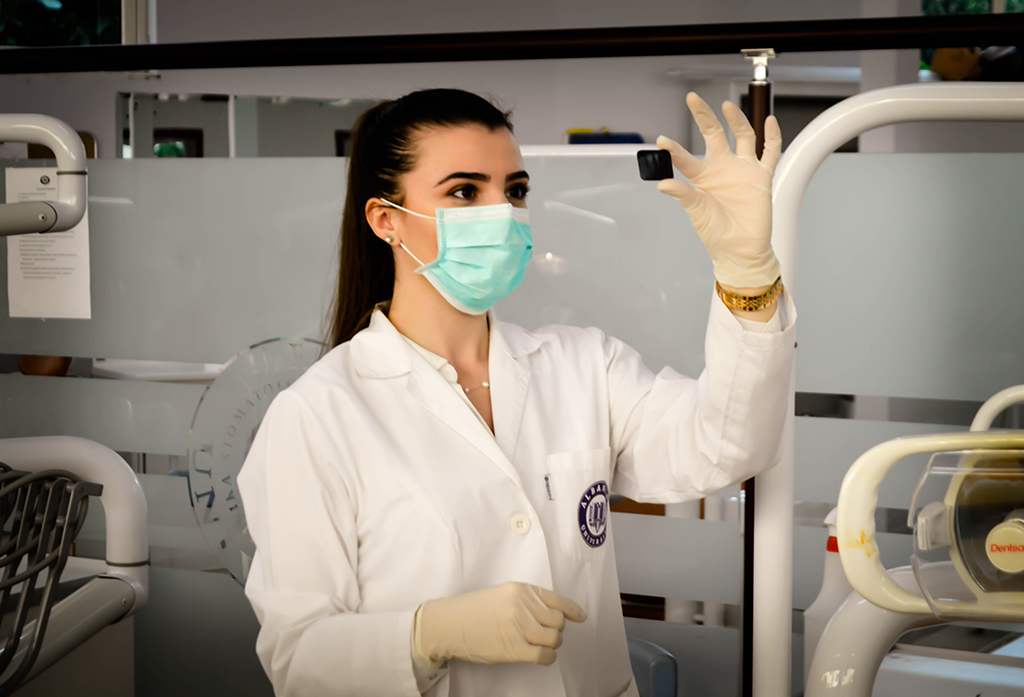50% of doctors report that stress compromises patient care standards
Employing more healthcare staff, extending visiting times and reducing working hours are some of the actions that would improve patient care
In a study on doctors’ perceptions of the links between work stress and lowered clinical care, 50% of professionals acknowledged that work stress had a negative impact on the care they provided (failure to follow protocol and snap decision-making); 40% reported expressions of irritability or anger; 7% admitted to having made serious errors without directly leading to the death of the patient, and 2.4% cited incidents that resulted in patient death.
Ana Moreno Alcázar, coordinator of the Forum Centre Research Unit of the Hospital del Mar Medical Research Institute (IMIM) and course instructor at the UOC Faculty of Health Sciences, explains that a series of factors exist in the healthcare environment that "significantly" increase the feeling of stress among healthcare personnel, the principal ones being the cuts incurred as a result of the economic crisis and a healthcare system that is overloaded due to lack of resources. This leads to the emergence of health problems, such as "depression and anxiety", Moreno adds.
"Currently healthcare professionals feel overwhelmed by the number of patients they are required to provide care for and the working conditions in which they have to do it: quick turnaround, working hours of 12 hours or more, staff shortages...," the expert continues. The healthcare environment also, by definition, requires professionals to cope with decisive situations on a daily basis, such as dealing with high-risk patients, intensive care, palliative care, critical health situations that, in many cases, end with a patient’s death. The bonds and relationships maintained with other colleagues working on the same shifts is another factor to be considered, "which can often be strained as a result of overload, which consequently leads to a feeling of unease", says the UOC professor.
Nurses and residents, the other groups experiencing high levels of stress
Doctors are not the only medical professionals that exhibit symptoms of stress. According to an article published by the prestigious journal JAMA, more than 30% of residents in their first years suffer from depression or depressive symptoms, a prevalence that does not diminish over time. Moreno points to the most common causes as being anticipation of responsibilities, doubts about their ability, a feeling of lack of control, feeling exploited and lack of resources, among others.
When it comes to nurses, the psychologist lists risk factors as being associated with spending many hours nursing patients who are suffering; feeling that they need to act as intermediaries between doctors, patients and their families; being subjected to intense criticism and demands from both sides; the devalued and biased image of their profession, as well as the lack of resources and long working hours.
Faculty of Health Sciences professor Dolors Colom adds medical social workers to the list of professionals prone to experiencing stress. "On the one hand, they receive requests for help from those who are ill and their families and, on the other, they know from direct experience that the system is totally over-run and the institutions do not have the relevant resources", explains the specialist.
Optimum working conditions
In order to turn the situation around, Ana Moreno suggests the implementation of preventive healthcare services and improved working conditions aimed at reducing levels of exhaustion and stress among professionals. "Employing more healthcare staff, extending visiting times and reducing working hours" are some of the measures she proposes. The psychologist believes that new policies such as these would bolster the physical and psychological wellbeing of healthcare personnel and would have a positive impact on patient care.
The UOC course instructor also notes that it is important for any doctor who is suffering from stress to take sick leave whenever they feel "overwhelmed" and their poor performance produces negative consequences in terms of the service provided to the patient. Before reaching that point, Moreno recommends that they ask for psychological help and adopt practices that help control stress, such as "relaxation, meditation, yoga, physical exercise and healthy eating".
9 out of 10 Spaniards have experienced stress in the past year
According to the 7th CinfaSalud study "Perception and habits of the Spanish population in relation to stress" produced by Cinfa with the endorsement of the Spanish Society for the Study of Anxiety and Stress (SEAS), nine out of ten Spanish people (96%) have experienced stress in the past year and for four out of ten (42.1%) it has been on a frequent or continuous basis, a percentage that equates to almost 12.5 million people (12,413,000).
Analysed according to gender, women exhibit higher levels of stress than men, with one in two (48.7%) reporting having felt stressed either frequently or continuously, compared to one in three men (31.5%). The under 45s are the age group that exhibit the highest levels of stress and, in an employment context, students top the ranking as the group who suffer most stress on a frequent or continuous basis (55.6%), followed by first-time job seekers (50.7%), with employed or self-employed workers (41.4% in both cases) coming in third.
Experts UOC
Press contact
-
Editorial department
